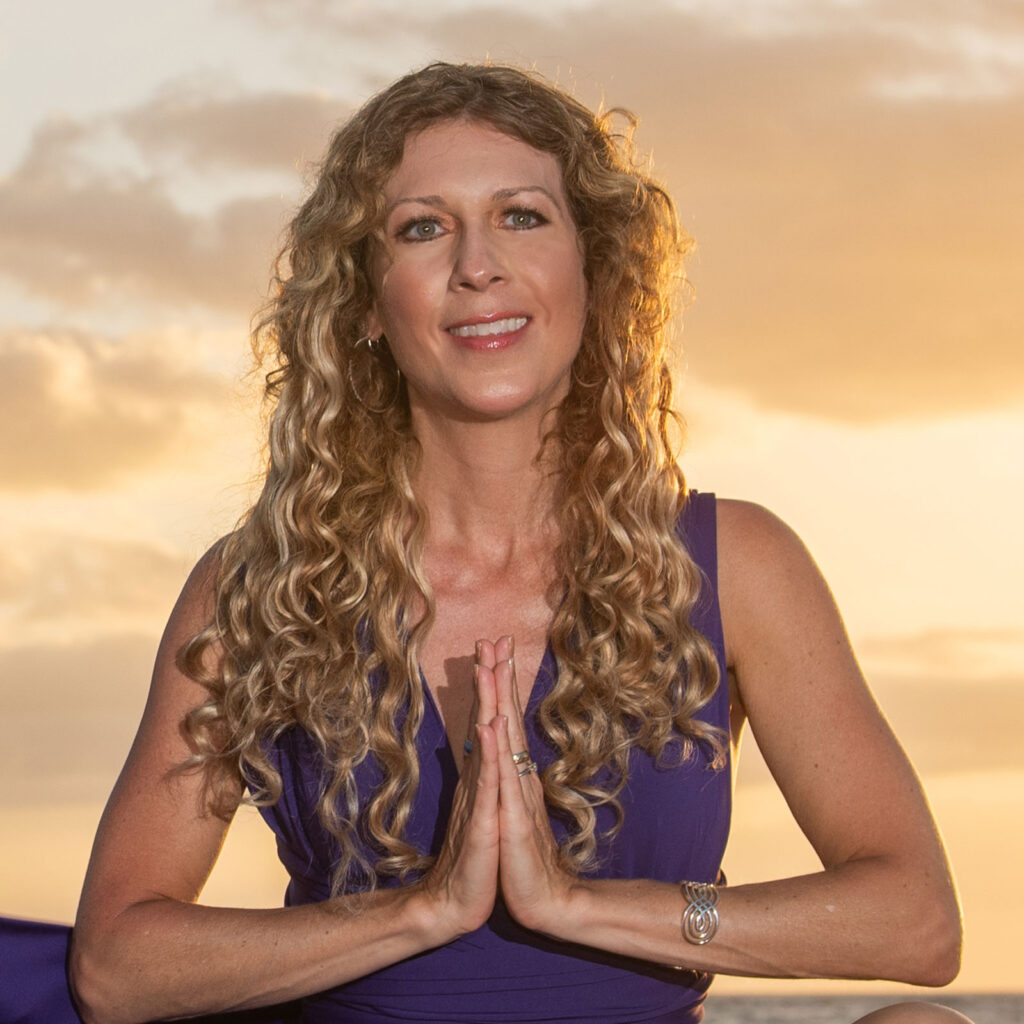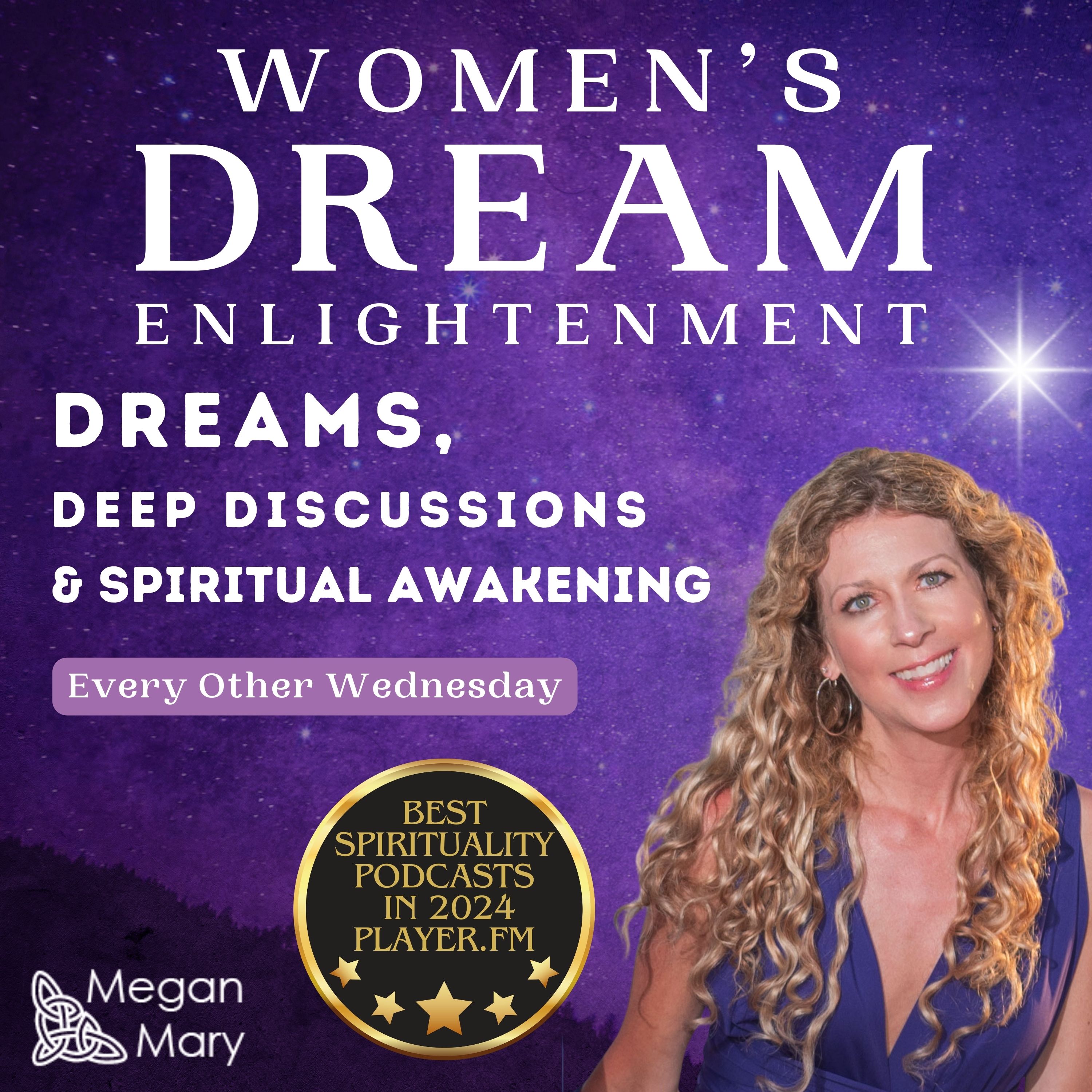
In this episode of Pursuing Uncomfortable, where I join Melissa Ebken in unraveling the mysterious world of dreams. In today’s conversation, we explore my personal journey and expertise in helping women tap into the transformative power of their dreams.
🌌 Diving Into the Dream Mirror Method
I introduce you to my Dream Mirror Method, a four-step process designed to empower individuals to decode their unique dream language. It’s not about relying on traditional dream dictionaries; instead, I encourage you to trust your intuitive understanding and discover the personal meanings embedded in your dreams.
💡 Dreams as a Source of Creativity
We delve into the fascinating realm of dreams used for creative purposes. I share insights into dream incubation, a method where you consciously influence your dreams by immersing yourself in specific thoughts or questions before sleep. We discuss how dreams have inspired famous artists, writers, and musicians, highlighting the profound impact dreams can have on creativity.
🚪 Exploring Dream Symbols for Self-Discovery
We unravel the symbolic use of houses in dreams, particularly focusing on my recurring dream of discovering new rooms. Together, we explore the metaphorical significance of these dreams, representing unexplored opportunities, forgotten passions, or undiscovered aspects of oneself. The discussion unveils the richness of dream symbolism and its potential for self-discovery.
🏃 Facing Pursuers in Dreams
Our conversation takes an insightful turn to recurring dreams where the dreamer is chased, a common theme among women. I delve into the metaphorical meaning behind being pursued in dreams, encouraging individuals to face subconscious fears and challenges. I introduce the concept of lucid dreaming and visualization as tools to alter dream scenarios and break recurring patterns.
🌅 The Power of Unfinished Dreams
We discuss waking up before significant dream moments, considering it as an invitation from the subconscious to reflect on the dream’s unfinished nature. I encourage you to appreciate the transitional space between dreams and wakefulness, allowing you to choose your own ending or interpretation.
🔗 Connect with Your Dreams: Take Action!
As we conclude, I urge you to listen to your dreams, which I consider as unopened letters filled with untapped potential. I invite you to keep dream journals, explore my Dream Mirror Method, and discover the transformative power within your own dreams.
🌟 Closing Thoughts: A Personal Call to Explore Your Dreams
In my final words, I encourage you to take the time to connect with your dreams, emphasizing the willingness to explore this unique realm of self-discovery. I’m grateful to Melissa for the opportunity to share these insights on Pursuing Uncomfortable. Embark on the mystical journey of dreams with me, and start your personal exploration of the secrets within your own dreams. 🌙✨
Transcript
🎶 Podcast Intro: Welcome to the pursuing uncomfortable podcast, where we give you the encouragement you need to lean into the uncomfortable stuff life puts in front of you, so you can love your life. If you are ready to overcome all the yuck that keeps you up at night, you’re in the right place. I am your host, Melissa Ebken let’s get going. 🎶
🎶 Episode Intro: Welcome to another episode of Pursuing Uncomfortable. In today’s episode, we have a fascinating guest joining us, Megan, Mary, a woman’s dream analyst from Idaho. We dive into the world of dreams with Megan, exploring her journey and how she helps women harness the transformative power of their dreams. We discuss recurring dreams, the significance of dream language, and the empowering Dream Mirror Method that Meghan has developed. From online courses to one-on-one dream sessions and dream journeys, Megan offers a variety of resources for individuals seeking to understand the meaning behind their dreams. So, if you’re curious about unlocking the hidden message within your dreams, this episode is perfect for you. Stay tuned and get ready to explore the mystical world of dreams with Megan Mary on Pursuing Uncomfortable.🎶
Episode:
Melissa Ebken 0:01
Megan Mary, welcome to the podcast. How are you today?
Megan Mary 0:05
I’m good, Melissa, how are you?
Melissa Ebken 0:07
I’m doing fantastic. Although I have to say my brain has been going at 100% for several hours. So hoping that that inspires our conversation and doesn’t hinder my ability to think so, you know, if you see me staring off into space cluelessly, I would appreciate you just come in there today.
Megan Mary 0:27
Likewise. Yes.
Melissa Ebken 0:30
So Megan, where are you from? Tell us a little bit about where you are, what you do, and those sorts of things.
Megan Mary 0:38
Yeah, I’m in Idaho. And I am a Women Dream Analyst. And I work exclusively with women to help them harness the transformative power of their dreams.
Melissa Ebken 0:52
That is so fascinating to me. I can’t wait to jump into this. So did you always do that? Did you begin somewhere else? Tell us a little bit about your journey.
Megan Mary 1:04
I’ve always been interested in dreams. And I was always fascinated by my own dreams. As a child, I had recurring dreams both good and bad. So I used to have a lot of really cool flying dreams. I also used to have a lot of disturbing nightmares. And I really always wanted to know what they meant. And I used to go and look up dream dictionaries and try to figure out what might be going on. And those definitions never really resonated with me. But I was always intrigued by anything that was magical or mystical, or even mysterious things that don’t really have a scientific explanation, maybe, but that I really felt drawn to. And that was part of the reason that I grew up just loving Halloween, because it was the one time of year that everybody really agreed that there were spirits around and it was something that was okay on that day to talk about and to experience. And I really just wanted to feel that way all the time. And it wasn’t until after I had my career for quite quite long time doing a digital marketing things that I got really sick and had a whole bunch of health issues impact me all at once pretty seriously. And it really put me into a state where I had to reconsider what I what I was spending my time doing if I was really following my inner calling and listening to that inner voice. And I ended up listening to my dreams. And I started meditating. And going back, I call it a spiritual awakening. But it was really more like a spiritual remembering, because it was really just taking me back to that connection I felt I knew I had, but I had just started to ignore it. And after I discovered that, I realized how powerful it can be. And I was pretty much just called to then spread that word, and help women everywhere also embrace that power for themselves.
That is so fascinating. I too, have had recurring dreams in childhood, very detailed, and you know, always really vivid in color, very detailed following a skript kind of dream. And that was always fascinating. Later in life, I had a few dreams that are more than just dreams. I knew that there was a message there for me in those. One of them was to wake up and get help for myself during a time that I was experiencing a lot of depression. One was when I was in seminary, I’ve been a pastor for 25 years now. And when I was in seminary, I had these thoughts of maybe joining the missionary field and traveling the world or just going wherever on the planet to do those things. And I had a dream that I was going through a house and it had all these different rooms that were different parts of my life and I got to the top floor and it was under construction. And that told me that you know, life isn’t fixed. You can make some choices, and it’s going to be okay, there’s always going to be more. I’ve had dreams where loved ones who have passed away have spoken to me in dreams and it wasn’t, that happens a lot, but sometimes it’s a little more directed, they’re directive than others. And I know so listen to those. I’ve had a lot of different types of dreams that I knew were seeing things. So this whole topic is fascinating. So where do you start?
Awesome and I have had those as well. Well, after researching it for so long, and just through my own experience, and the combination of all the different, both academic and esoteric things that I’ve researched and studied, I really came up with my own method that I devised and felt that that was the best pathway for me. And I call it the dream mirror method. And it’s just four steps. And it’s helps you decode your own dream language. So that I’m not necessarily telling you what what your dreams mean, I’m helping you figure out for yourself what they are. And it’s really an empowering process, because I want people to be able to adapt it and use it going forward themselves.
Melissa Ebken 5:50
And this is available on your website, I’ve noticed that, you know, there’s some great offerings on the website, of course, it is linked in the show notes. So take some time and click over this. And, you know, check out the podcast, check out the offerings that she has there. And I think it’s definitely worth just checking out but also delving into. What are some of the things that you like to offer folks that’s a starting point?
Megan Mary 6:22
Yes. So I have online courses, and I have two on there right now. And they both walk you through the Dream Mirror Method. And then I also have dream sessions, which are just one on one zoom sessions, where you record a dream, and then you bring it to the session, and I help you decode it and understand it. And then I also have what are called Dream Journeys, where they’re basically a series of sessions where we work on a particular thing, whether it’s a nightmare or recurring dream, or if you want to use your dreams for creative purpose, or to gain confidence or for personal growth. So I also have a journey that’s called the Treasure Box that is for dream incubation, and lucid dreaming. And then I have one called the Time Loop for recurring dreams, and one called Crossroads, which is for transitions. And that’s really, for anyone who’s at a point in their life where they’re really starting to seek answers. Maybe they’ve had a loss in their life, or they’re going through a life change like menopause, or they’ve moved, or they’ve changed their job, or their relationships, or something has really rocked them. And they’re really looking for direction. And so I also do live events, and webinars, so lots of different things depending on what you’re looking for.
Melissa Ebken 7:53
So if I have a recurring dream, some of them seem kind of obvious to me, the ones where I show up to important events, and I don’t have my clothes on or I don’t have what I need to do at that event that tells me that maybe I need to spend a little more time prepping and so forth. Are there some common things that you see over and over?
Megan Mary 8:18
What I think is most important, and what I try to emphasize in the method is that no matter how common some dreams might be, that we need to understand that their meaning is still individual to you. And so you you had just mentioned that you have a recurring dream where you’ve forgotten your clothes. And I’m assuming, by the way that you said it, that you’re feeling embarrassed about that situation. Now, someone else might have a dream where they realize that they’ve forgotten their clothes. But oddly enough, they don’t feel uncomfortable. And so the way that you feel in the dream is really important in deciphering the meaning. Yeah, so one person might say, Yeah, I dreamt about a snake, Oh, I dreamt about a snake too. But their life associations with a snake and how they feel about a snake and what the snake symbolizes in their dream are going to be completely different because everyone’s life experience is different. So I really try to not generalize. And it’s part of the reason I say break up with your dream dictionary, because as tempting as it is to look there for meaning, it’s not going to be your meaning.
Melissa Ebken 9:29
And that’s so interesting you say that because in the dream, I have an awareness that that is the case. And it’s so funny, because I’m not embarrassed. I’m wondering, why aren’t I embarrassed? Why is this? Why is this okay? How long has this been? You know, it’s just kind of these different feelings of, right, this shouldn’t be this way. This should probably be a different way. But this is the experience we’re having here.
Megan Mary 9:56
Right and some people would have a completely different reaction, right. And it’s not that you’re choosing that reaction. That’s just the way your subconscious is reacting. And that I would, I would say that the fact that you’re not feeling embarrassed about it is actually a really good time because it means that you’re comfortable in being vulnerable, that you’re comfortable in letting people see your true self, which is a very positive thing as far as personal growth goes. So if you are having a feeling of embarrassment, and you want to hide and you, you’re, you’re distraught, that would be reflecting that you actually don’t want to be seen. You’re afraid of people knowing what you’re hiding inside. So
Melissa Ebken 10:42
Very interesting. Something you said earlier, dreaming for creative purpose really caught my intention. Is there a way we can kind of pre load our dreams that we can prep our brains or perhaps, perhaps rep or psyches in order to dream about something?
Megan Mary 11:01
You can and so it’s referred to as dream incubation or dream manifestation. And it’s basically creating a dream that will solve a problem for you or answer a question. And so when you keep a dream journal, part of what you can do is when you go to bed at night, you can record your your mood for the day, I always encourage that the mood before you go to bed, during the dream that you had and then when you wake up, but also you can write down a question. And so if you are working on a creative project, for example, because I’m a writer, and I’m writing a novel, and sometimes I get stuck at what’s going to happen next, if you if you immerse yourself in whatever it is that you want the answer about before you go to bed, and even write down in your journal, what your question is, and think about it intently as you’re falling asleep, your subconscious mind will work on that question for you, and will present solutions and ideas. And they might not appear to you as the literal solutions until you decode the language because it’s quite, you know, your subconscious is picking from all these different things in your library that and putting it together into a story to say, okay, this is a solution for you. And so really learning how to tap into that is how we can get these wonderful ideas. So the idea for my novel came from a dream and so many famous musicians, composers, filmmakers, writers, even painters have been influenced and inspired by their dreams.
Melissa Ebken 12:49
This is so interesting. And my husband and I will talk sometimes. I will wake up pretty frequently saying you are not going to believe the dream I had. And his dreams aren’t, don’t tend toward the bizarre, so much as mine do. Mine, you know, I’m cooking supper, and then I open the door and I’m walking in Texas or something, you know, they just one thing leads to something else completely different. And, you know, if you’re trying to write it out as one continuous plot, I think that it would get a lot of scrutiny and wondering about my mental health but that his dreams, on the other hand, and I say that tongue in cheek, I know it’s not but you know, just the stream of consciousness present in my dreams. And then is there more of what one might expect in a conscious state rather than in a dream state. So we always have a chuckle about that?
Megan Mary 13:51
Well, that’s part of the reason that we’re talking about dreams and Pursuing Uncomfortable, isn’t it? Because a lot of people feel uncomfortable talking about their dreams, because they, unless they’re lucid dreaming, they’re not choosing the content. And they’re thinking, Well, I’m embarrassed to say this, but this is what it was. I don’t know, I didn’t, I didn’t do it, you know, it just that’s what it was. And so it’s really creating an awareness and appreciation and a comfortable space where people can feel that they can share their dreams and not be persecuted or embarrassed or putting all those judgments on themselves, or letting society put those judgments of themselves. And so it’s really creating a space for that. But also, you’re right, that they’re not linear, and that’s okay. They don’t need to be. And it doesn’t mean that they don’t make sense. Well, doesn’t mean that there isn’t a greater meaning, I should say. And so by putting down everything that you can remember, and whether whether it’s linear or not just all the different things and I opened a door and then I was in Texas, okay. So then we look at, you know, what’s the metaphor of a door? We look at what is your association with Texas. I mean, there’s a lot of layers that we start to peel back to decipher what that greater meaning is. And part of the reason that I work with women also is because, scientifically, there’s been studies that women’s dreams are very different from men’s dreams, and women actually have quite an ability to give a much more detailed record in their recall as well. So there’s a lot of differences that as well as our hormones, that can really influence our ability to recall dreams, as well as the content of our dreams, as our bodies change, our dreams change. And it’s just fascinating the interplay there.
Melissa Ebken 15:49
You know, I’ve often felt like whenever I dream about a house, that its generally representative of me, or my mind, or, or something within myself. So anytime I have that kind of dream, I pay particular attention. And my favorite recurring dream is when I’m in my house, and I discover a whole lot of rooms that I either oh, yeah, I forgot all of these are here, or, oh, look, I should have come through this part of the house a long time ago, there are so many rooms down here. And they’re all different than they’re fun. And that’s always been a comforting dream to me, even though I don’t know what all of it might mean. But I always wake up after a dream of that nature, feeling inspired. Like there’s more to discover, or perhaps there’s something, a passion that I have forgotten about, or something of that nature.
Megan Mary 16:51
Yes, precisely. So that’s a great example of why mood is so important. Because the mood that you wake up in is you feeling very inspired. You’re feeling like, Wow, there’s so many things I haven’t even thought of doing and so much out there so much to explore. And, yes, it is. So because of that, and because of the fact of how you feel in the dream as well, where you’re just saying, Wow, I forgot all these were here, I didn’t even know these were here in that and you’re curious, and you’re exploring. All of that is very much a metaphor for the doorways of your life, the different rooms of your life, the opportunities that you are starting to, at least on a subconscious level, realize we are still there for you.
Melissa Ebken 17:34
And then there are those others, where I am being chased mercilessly, and I can’t run or try to move and I’m frozen, or I try to scream and I can say those. Oh, I don’t like those.
Megan Mary 17:52
Yeah, yes. And those are very, very, very common. And also very, very common for women. So sort of the, you know, faceless pursuer or, you know, is is very, very common. And so the metaphor for that is, what are you feeling that you’re being chased by that you’re not facing? That you’re not turning around and facing? That you’re keeping hidden in your subconscious. And when we can use lucid dreaming and visualization to change that scenario, we can many times break that cycle of, of feeling pursued and and it’s happened many times that people have had recurring dreams of being chased. And then, either by attaining a state of lucidity, were able to turn around and face or chaser. And their chaser either disappeared or became their friend or became something totally different and the whole scenario change. Or they were able to step back into that dream in a waking visualization, and realize a different outcome for that dream. And that, in itself was able to change the scenario once they experienced it again, in the dream state. So there’s a lot that our mind can do. And once we start tapping into the capabilities, and I always say that, you know, 5% of our mind is conscious and 95% is subconscious. So the subconscious is really so powerful. And it’s really dictating a lot of what we’re doing in our daily life. And we just don’t realize that. And when we have a recurring dream, it’s usually because it’s trying to draw our attention to something that we’re just not paying attention to. Whether it’s something that’s upsetting to us, or it’s just something that’s an opportunity for us.
Melissa Ebken 19:51
So why do we wake up? Or maybe this isn’t a generalized experience, and I shouldn’t generalize it for others, but why do I always wake up right before that great moment or right before that terrible moment? There’s something big in my dream, and it’s all coming together in this most exciting way. And I always wake up before it’s realized. And on the other hand, something terrible is coming together. And in the moment before it’s realized, I’ll wake up.
Megan Mary 20:26
Well, it very well could be that your sub your subconscious, of course, that your whole brain is working together, and parts of it are turned off when you’re asleep, and parts of it are still turned on. So of course, the limbic system is still really active when you’re sleeping, and the emotional part of your brain, and the logical parts turned off. But when you of course, wake up suddenly, and your dream is unfinished. I really feel like that’s an invitation from your subconscious to say, okay, you know, let’s what just happened, you know, look in that transition, appreciate that space. Because it’s really all about brainwaves. And you know, of course, there’s been tons of sleep studies done of the change in brain waves, between waking and sleep. And it’s also the same thing that happens when you meditate or really attain any other kind of different brainwave state. And so, of course, there’s a scientific explanation, but there can also be more of a metaphysical metaphor explanation to that as well, that you, it’s up to you to kind of finish that story.
Melissa Ebken 21:34
I like that. Actually. I like that. To finish it or to prevent it, depending on. Choose your own ending. Yeah, I could ask you have 1000 more questions than and, you know, I know that the whoever’s listening right now probably also has 1000 questions. So if you do, I encourage you to click that link, go to Megan’s website and reach out. This has been fun and my dreams aren’t your dreams, you probably have different themes that come up and connect with Megan and get some clarity on that. Or some confirmation on that. Megan, as we close today, are there any last thoughts that you would like to leave with us?
Megan Mary 22:23
I just want to encourage everybody to listen to their dreams because they pretty much are a unopened letter if you don’t and there’s so much potential in there if you just connect and have that willingness. So take take some time and start to keep a dream journal and you know, check out check out the course, learn the method and apply it and see if it helps you.
Melissa Ebken 22:50
Thank you, Megan, for joining us on Pursuing Uncomfortable.
Megan Mary 22:55
Thank you Melissa. Thank you so much.
🎶 Episode Outro: Thank you so much for tuning into today’s episode. If this encouraged you, please consider subscribing to our show and leaving a rating and review so we can encourage even more people just like yourself. We drop a new episode every Wednesday so I hope you continue to drop in and be encouraged to lean into and overcome all the uncomfortable stuff life brings your way. 🎶








